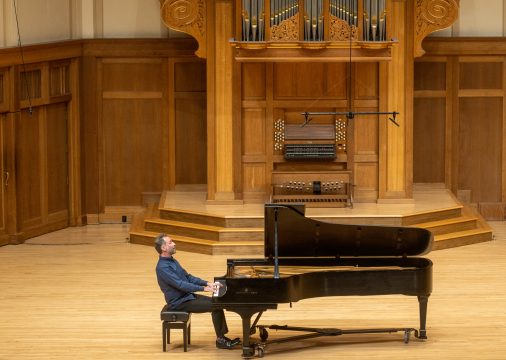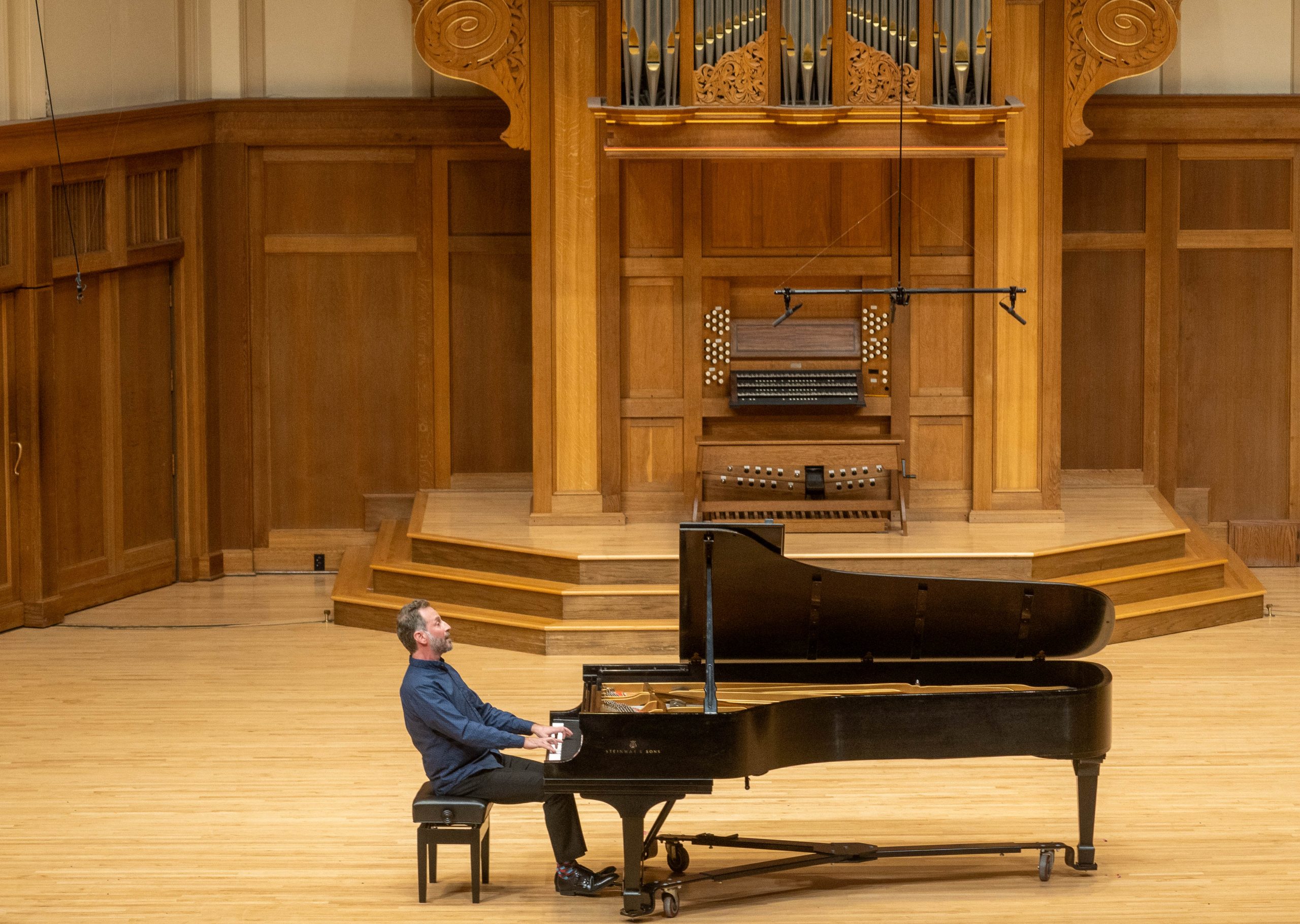On Wednesday, Oct. 23, Frank C. Shattuck Professor of Piano, Michael Mizrahi, performed a faculty recital in the Lawrence Memorial Chapel. A professor at Lawrence since 2009, Mizrahi received his bachelor’s degree from the University of Virginia (concentrations in music, religion and physics), a master’s and doctoral degrees from the Yale School of Music. He also completed a two-year residency study at the New England Conservatory before joining Lawrence’s faculty. Mizrahi is credited as a concerto soloist, chamber musician, recitalist and a teaching artist both in the U.S. and abroad, and is overall a well-renowned musical artist (his Lawrence biography introduces him with journalist and music critic praise — things you’d see on a movie or book cover).

At 8 p.m., Mizrahi opened his recital with Philip Glass’ “Trilogy Sonata,” movement “II. Satyagraha” (Conclusion, Act III). This piece was calm, slightly mysterious, with its volume occasionally mounting — ebbing and flowing like water. It was a relaxing listen. After the song drew to a close, Mizrahi addressed the audience. He noted that this first piece was from the opera “Satyagraha” and the specific song was titled “Evening Song.” The opera itself is based on the Hindu religious text, the Bhagavad Gita, with the text being in Sanskrit for that part of the opera; Mizrahi declared it a beautiful transcription. Furthermore, he acknowledged that there is a lot going on in the world currently, so sharing this beautiful music is lovely, which I think is a nice thought. Often, recitals have an overarching theme, but Mizrahi expressed that this recital is simply music that he wanted to play and to share.
Next, he transitioned to Wolfgang Amadeus Mozart’s “Piano Sonata in B-Flat Major, K. 570.” Apparently, this is the second-to-last work that Mozart wrote. It consists of three movements: allegro, adagio and allegretto. Naturally, allegro was upbeat, fast and light, while adagio was slow and expressive. Allegretto is a mix of the two, being lively and upbeat, but only moderately fast. After completing this piece, Mizrahi noted that a project he’s been a part of has been commissioning several new works for solo piano, accrediting the Conservatory and its celebration of 150 years. He shared that, in the past 10 or 15 years, he has commissioned works and released three albums, with one of these albums being released this past summer. How exciting!
Mizrahi introduced Joanne Metcalf’s “The Undreaming” in his little speech. I fear that I am unclear as to what “commissioning” means in the music scene, but it seems that Mizrahi helped Metcalf bring her piece into fruition and publication. This piece consists of three movements: “Undreaming,” “Celestial Clockwork,” and “Infinite Aftertime.” It is supposed to depict Metcalf’s love of quantum physics by capturing the motion of subatomic particles in a musical and poetic way. Also, from her program note, which I thought was quite lovely: “At the heart of all matter, stars, and galaxies — the Earth and other planets and our own human bodies — lies a celestial dance of waves and particles, and the sublime phenomenon of non-existence becoming existence. Delicate, fast-moving passages of music portray the intricate choreography of subatomic particles. In contrast, grand chordal passages that span the length of the keyboard captured a monumental timescale of stars and galaxies.”
To conclude, Mizrahi played Pyotr Ilyich Tchaikovsky’s “Six Pieces,” op. 19, which consists of six movements, as the title relays: “Reverie du soir,” “Scherzo humoristique,” “Feuillet d’album,” “Nocturne,” “Capriccioso” and “Thème original et variations.” According to Mizrahi, “Six Pieces,” op. 19 isn’t played often, but it reflects Tchaikovsky’s style of emotional writing. Interestingly, this work was written about a year or two before “Swan Lake” (“…if you know that piece.” Of course I do; I was a frequent viewer of the Barbie films, including the 2003 “Barbie of Swan Lake.”)
Within an hour, the recital came to an end. I always find piano so enjoyable to listen to, so this attendance was very worthwhile. For more on Michael Mizrahi, visit his website and/or check out his new album, “Dreamspace”!
The recorded livestream of his recital may be found here.

